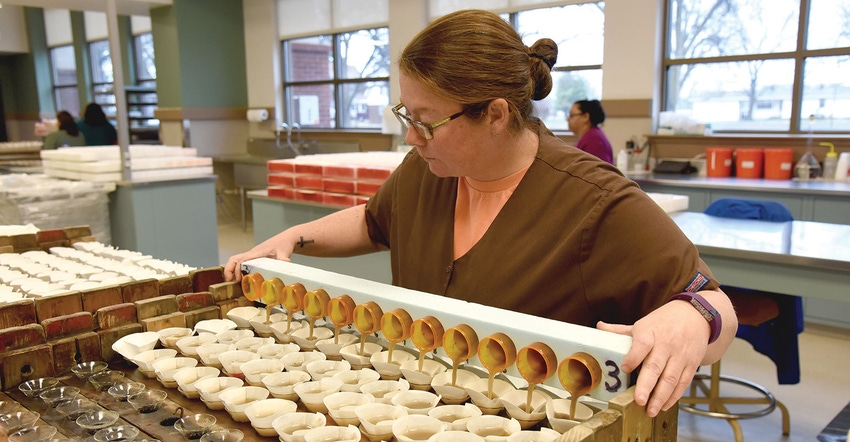November 4, 2019

The newly installed Laboratory Information Management System, or LIMS, at the Soil Testing and Research Laboratory at Marianna, Ark., will provide added convenience for soil test customers and streamline processing for those who analyze the samples.
The new software, along with bar-coded containers, will expedite the work of farmers and consultants, as well as soil lab workers, said Nathan Slaton, director of soil testing and assistant director of the Arkansas Agricultural Experiment Station, the research arm of the University of Arkansas System Division of Agriculture.
“The LIMS program allows for rapid logging-in of samples by consultants who want to import the analytical soil test data,” he said. “Clients can now submit their own samples and deliver directly to the lab without pages of paperwork.”
On the processing end, lab techs will no longer have to physically pair each soil sample box with corresponding paperwork.
“Previously, we had to place samples in the order using paperwork that accompanied the samples to the lab, which was time consuming when large numbers of samples were coming to the lab,” he said. “The secondary advantages include more precise control in monitoring sample quality control and quality analysis in the lab.”
“Once they log the sample and put information in about the sample, such as what types of crops they want to grow, and other information, they can bring their sample box to the county Extension office, or bring it to us,” said Cindy Herron, a program technician at the soil lab, referring to Arkansas producers who use the service.
After that, “we scan it, analyze it and the information goes back into the system,” she said. “When their reports are ready, they get an email and they can go online and review their results.”
The online system also eliminates questions about whether the samples were received, Slaton said.
The online form was designed to mimic the familiar CES 435 paper form that soil test clients have been filling out for years, although the old method of bringing soil samples to the county Extension office is still available for homeowners and other clients, Slaton said.
The new system began as a pilot project in June — typically a slower time for the lab. The lab has since added more counties, and LIMS now encompasses all 75 counties, Herron said.
In addition to investing in the software, the soil lab also acquired new bar-coded boxes.
“Everyone can pick those boxes up at the county Extension office, except for consultants,” who typically require a much greater volume of boxes, Herron said. Consultants should contact Linda Moore at the soil test lab at (870) 295-2851 to acquire the bar-coded boxes.
The new system couldn’t be better timed, Herron said.
“We normally process 200,000 samples per year,” Herron said, noting that the rate of requests has been lower through the fall of 2018 and the spring of 2019 due to high rainfall across the state.
“I feel like this year will be a lot more,” Herron said.
To learn more about the work the lab does, visit https://aaes.uark.edu/technical-services/soil-testing-and-research-laboratory/.
Testing services at the lab are funded by the Fertilizer Tonnage Fee with support from the Arkansas Soil Test Review board. The fee has supported soil testing services and enforcement of fertilizer laws in Arkansas since 1953 and provides free routine testing of soil at the Marianna Laboratory.
About the Author(s)
You May Also Like






